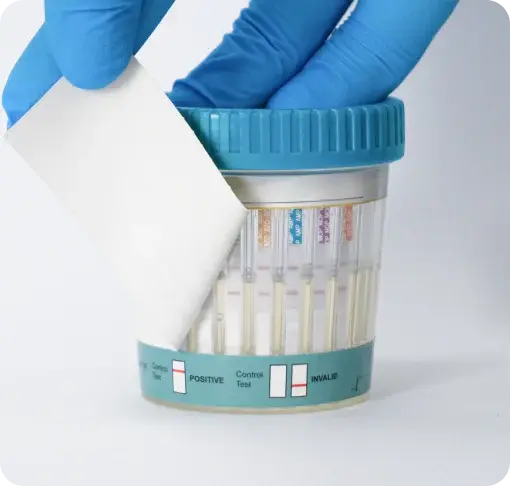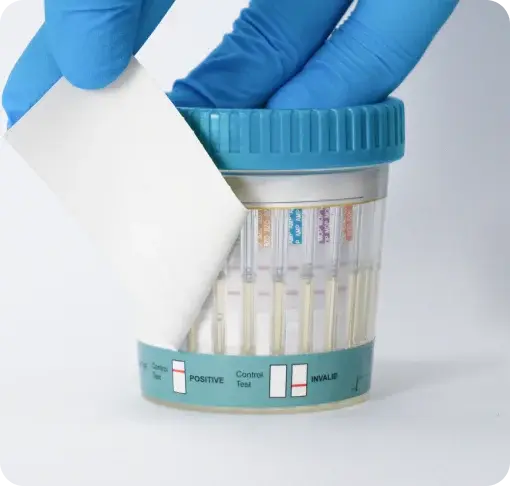Understanding False Positives in Workplace Drug Testing with POCTs
Workplace drug and alcohol testing using Point of Care Tests (POCTs) is a widely used method to quickly screen employees for drug or alcohol use on-site. These tests are convenient, but they’re not perfect—certain everyday foods and over-the-counter (OTC) products can trigger false positive results.
In this blog, we’ll cover the list of foods that can cause a false positive drug test, why it happens, and what steps to take to avoid misinterpretation in workplace testing.
List of Foods That Can Cause a False Positive Drug Test
Here is a breakdown of specific foods and substances that have been shown to interfere with POCT drug testing:
|
Drug Class (Detected by POCTs) |
Food or OTC Product | Why It Triggers a False Positive |
| Opiates (Morphine/Codeine) | Poppy seed muffins, bagels | Contain trace amounts of morphine and codeine |
| THC (Cannabis) | Hemp seeds, hemp oil (unrefined) | Contain trace cannabinoids, especially in full-spectrum products |
| ETG (Alcohol Metabolite) | Kombucha, sauerkraut, soy sauce, ripe bananas | Contain or trigger ethanol production/metabolism |
| Cocaine | Coca tea, coca-containing herbal products | Contain actual coca alkaloids |
| Amphetamines | Diet pills with ephedra, cold medicines with pseudoephedrine | Structurally similar to amphetamines |
| Methamphetamine | OTC cold meds, energy supplements | Contain pseudoephedrine/ephedrine which mimics methamphetamine |
| Benzodiazepines | Not food-related, but sertraline (Zoloft) can interfere | Some antidepressants share similar structures |
| Methadone | OTC antihistamines (e.g., diphenhydramine) | High doses can mimic methadone in tests |
These food-related false positives can lead to unnecessary stress and potentially wrongful disciplinary action if not properly verified.
Why Do False Positives Happen in POCT Drug Testing?
POCTs are immunoassays, which work by detecting drug metabolites through antibody responses. However, these antibodies may cross-react with chemically similar compounds—such as those found in certain foods or medications.
While these tests are convenient, they are not confirmatory, and cross-reactivity is a known limitation.
Always Use Confirmatory Testing
Employers should never rely solely on POCTs for final decisions. Instead, confirmatory lab testing using GC-MS (Gas Chromatography-Mass Spectrometry) should always be performed when a non-negative result occurs. This ensures that any false positives caused by food or OTC products are ruled out.
Summary: What Foods Can Cause a False Positive?
To recap, here's the most commonly reported list of foods that can cause a false positive drug test:
- Poppy seeds – May result in a false positive for opiates.
- Hemp seeds/oil – Can lead to false THC (cannabis) positives.
- Kombucha & fermented foods – May trigger ETG (alcohol metabolite) results.
- Coca tea – Can test positive for cocaine.
- Cold medications/diet aids – Can result in amphetamine or methamphetamine positives.
Click on our quiz below to test your knowledge on false positives in drug and alcohol testing.
Final Thoughts for Employers and Employees
If your workplace uses POCT workplace drug and alcohol testing, be aware of potential false positives caused by diet or OTC product use. Employee education and confirmatory testing are key to maintaining fairness and accuracy in workplace drug policies.
Need help with accurate and reliable workplace drug testing services?
Contact us today to learn more about our confirmatory lab testing options and high-quality POCT kits.
Watch False Positives Webinar



